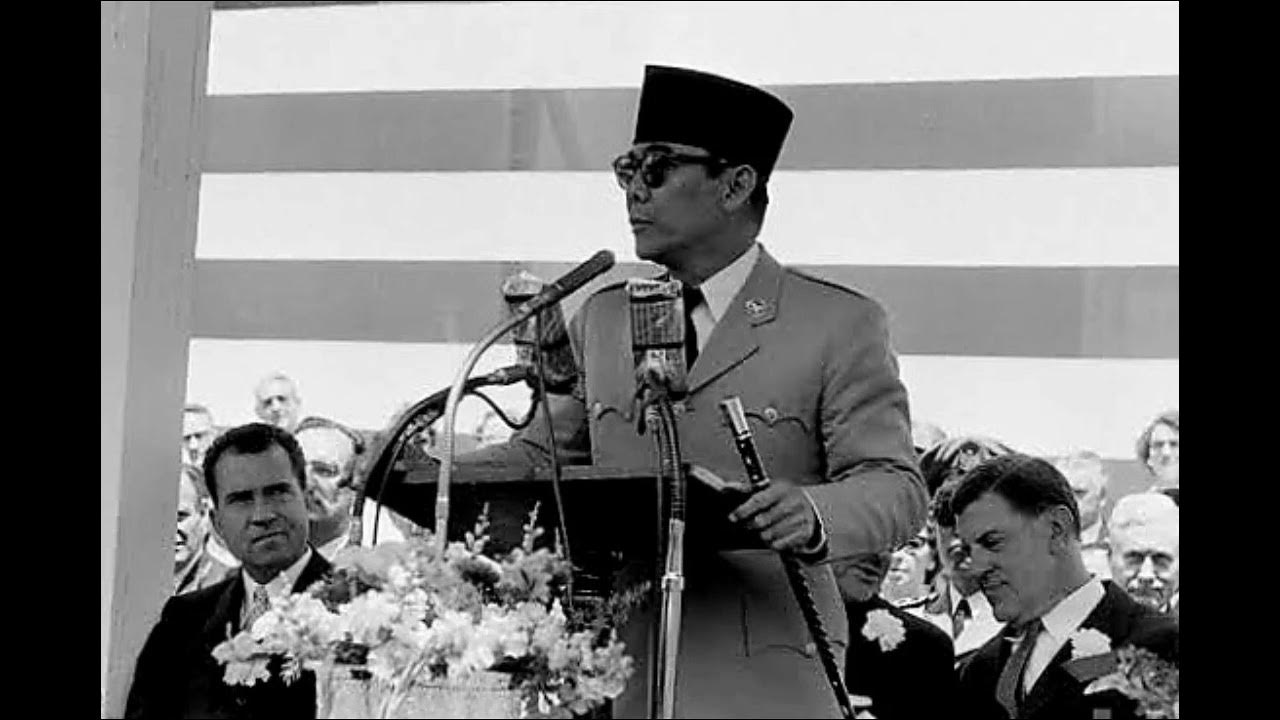Indonesia’s ‘Walled Garden’ | Chronicles #14 with Bagus Muljadi
Summary
TLDRThe speaker reflects on the dynamic interplay between nationalism and liberalism, emphasizing that both elements are essential for Indonesia’s development. Nationalism is seen as a unifying force, while liberalism fosters individual freedom and meritocracy. However, the speaker also points out the challenges that come with the tensions between these ideologies, especially in a multicultural society like Indonesia. The importance of a balanced approach to governance is highlighted, where nationalism and liberalism are integrated to ensure economic growth, social harmony, and global influence, allowing Indonesia to navigate its diverse complexities and assert its role on the world stage.
Takeaways
- 😀 Nationalism should be a unifying force, not a tool to suppress criticism or dissent.
- 😀 Liberalism values individual rights and freedoms but faces challenges in ensuring equality in societies with significant disparities.
- 😀 Meritocracy offers opportunities based on abilities and talents but is hindered by economic and social inequalities.
- 😀 Geopolitical interests, such as nationalistic agendas, often conflict with liberal ideals on the global stage.
- 😀 Indonesia's cultural diversity presents both opportunities and challenges for fostering equality and opportunity.
- 😀 Meritocracy should be fair and provide equal opportunities, addressing systemic inequalities like education and access to resources.
- 😀 Nationalism should focus outward, asserting Indonesia's global influence and promoting its values internationally.
- 😀 Countries with strong liberal traditions must adapt their national identities to reflect their unique historical and cultural contexts.
- 😀 The concept of 'Reynolds number' is used as an analogy for balancing liberalism (inertia) and nationalism (viscosity) for optimal governance.
- 😀 Without a strong nationalist spirit, Indonesia risks fragmentation, while without liberalism, its economic potential may remain untapped.
- 😀 A dynamic national identity should evolve from Indonesia's cultural and geopolitical realities, reflecting its role in solving global problems.
Q & A
What is the central theme of the speech?
-The central theme of the speech revolves around the balance between nationalism and liberalism in Indonesia's political and social context. The speaker emphasizes the need for nationalism to strengthen the country while ensuring that liberal principles such as individual rights, meritocracy, and tolerance are also upheld.
How does the speaker define liberalism?
-Liberalism is defined by the speaker as a political ideology based on the assumption that humans are individual beings who enter into a social contract. It stresses the importance of reason, the protection of individual rights, and tolerance for differing views. It allows for the protection of individual freedoms while promoting meritocracy.
What are the challenges of implementing meritocracy, according to the speaker?
-The speaker identifies that while meritocracy ideally gives everyone an equal opportunity to compete, in reality, factors like economic background, education, and access to resources can create inequalities. These disparities can prevent meritocracy from functioning as intended.
Why does the speaker argue that nationalism is essential?
-Nationalism is seen as essential because it provides a unifying narrative for the country. The speaker believes that while liberalism promotes individual rights, nationalism binds people together, ensuring that the country's collective interest is prioritized over individual interests, particularly in geopolitical contexts.
What is the relationship between nationalism and liberalism in the speech?
-The relationship between nationalism and liberalism is presented as complementary. The speaker suggests that liberalism, though valuable for individual freedom and meritocracy, requires the structure and protective boundaries provided by nationalism. Nationalism helps prevent the chaos that could arise from excessive individualism or competition.
How does the speaker view Indonesia's position in global geopolitics?
-The speaker highlights that Indonesia, with its rich natural resources, holds significant geopolitical importance. However, due to the lack of absolute moral standards in international relations, the country faces the risk of external interference from larger nations. Nationalism is presented as crucial to maintaining Indonesia’s sovereignty and resisting such external pressures.
What role does education play in the speaker's vision of a just society?
-Education is emphasized as a key factor in enabling a fair meritocratic system. The speaker advocates for quality education for all, which would reduce structural discrimination and provide equal opportunities for individuals, regardless of their background.
What is the speaker’s view on Indonesia’s cultural diversity?
-The speaker acknowledges that Indonesia's cultural diversity is both a blessing and a challenge. While it can enrich the country, it also complicates the implementation of liberalism and meritocracy. Some groups may dominate others, creating inequality, which is why fairness in access to resources and opportunities is vital.
What is the significance of nationalism in Indonesia’s foreign policy?
-Nationalism plays a crucial role in shaping Indonesia's foreign policy, as the speaker believes it should serve as the foundation for the country’s international engagement. By asserting a strong national identity, Indonesia can influence global issues and resist external pressures without compromising its own interests.
How does the speaker use the concept of 'Reynolds number' to explain the relationship between liberalism and nationalism?
-The speaker uses the 'Reynolds number' analogy from fluid dynamics to explain the balance between liberalism and nationalism. Just as the Reynolds number helps engineers prevent turbulence in fluid systems by balancing forces, nationalism acts as a stabilizing force that prevents the chaos of unchecked liberalism, ensuring a stable and orderly society.
Outlines

This section is available to paid users only. Please upgrade to access this part.
Upgrade NowMindmap

This section is available to paid users only. Please upgrade to access this part.
Upgrade NowKeywords

This section is available to paid users only. Please upgrade to access this part.
Upgrade NowHighlights

This section is available to paid users only. Please upgrade to access this part.
Upgrade NowTranscripts

This section is available to paid users only. Please upgrade to access this part.
Upgrade NowBrowse More Related Video

PIDATO BUNG KARNO: KAPITALISME, KOMUNISME, IMPERIALISME, KOLONIALISME, DAN NASIONALISME.

PAHAM-PAHAM BESAR DI DUNIA

IDEOLOGI-IDEOLOGI DUNIA DAN PENGARUHNYA TERHADAP GERAKAN NASIONALISME DI ASIA AFRIKA

kelas 9//A.Harmoni dan Solidaritas Global bagi Bangsa Indonesia// bab 4//kurikulum merdeka//sem 2//

NASIONALISME

KROMATOGRAFI KERTAS I KIMIA
5.0 / 5 (0 votes)